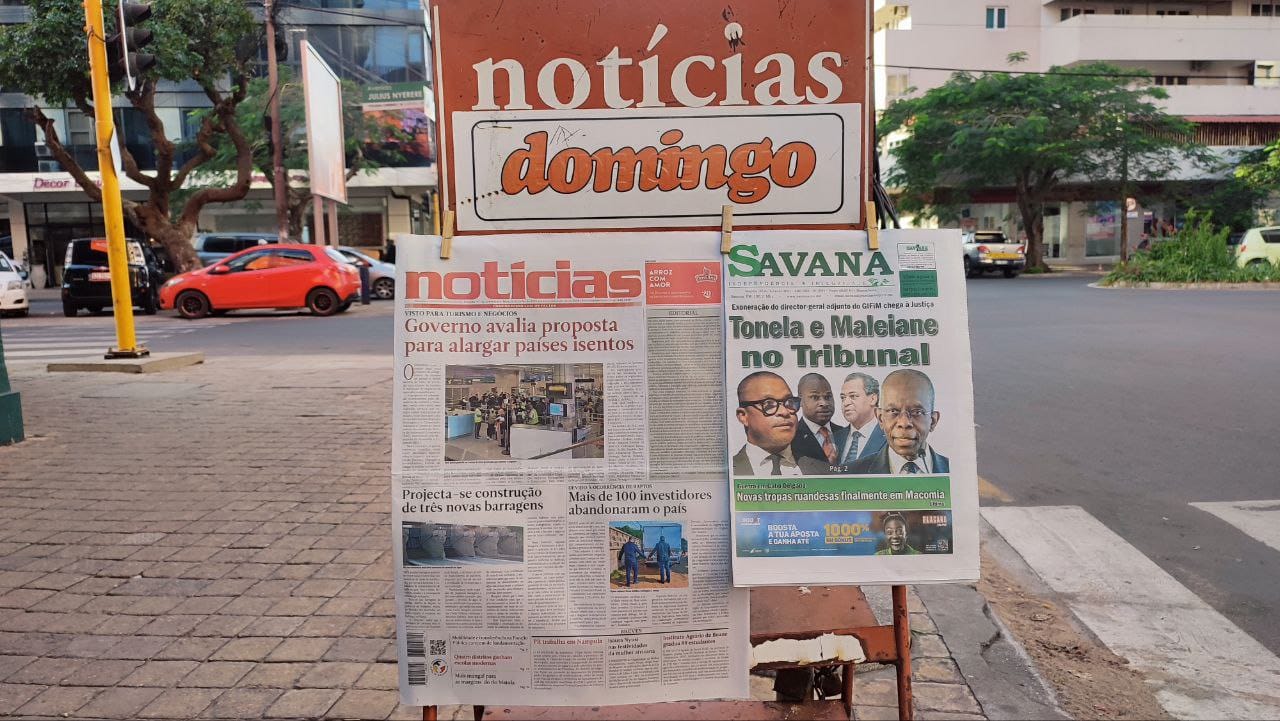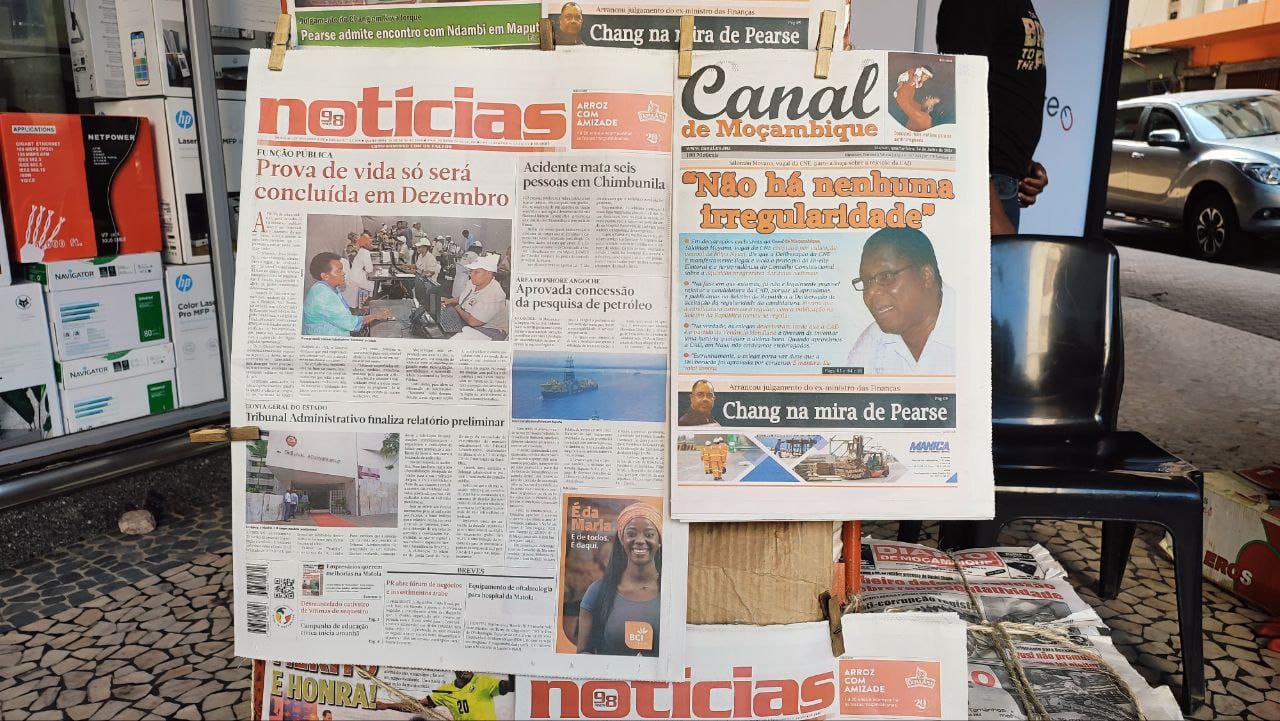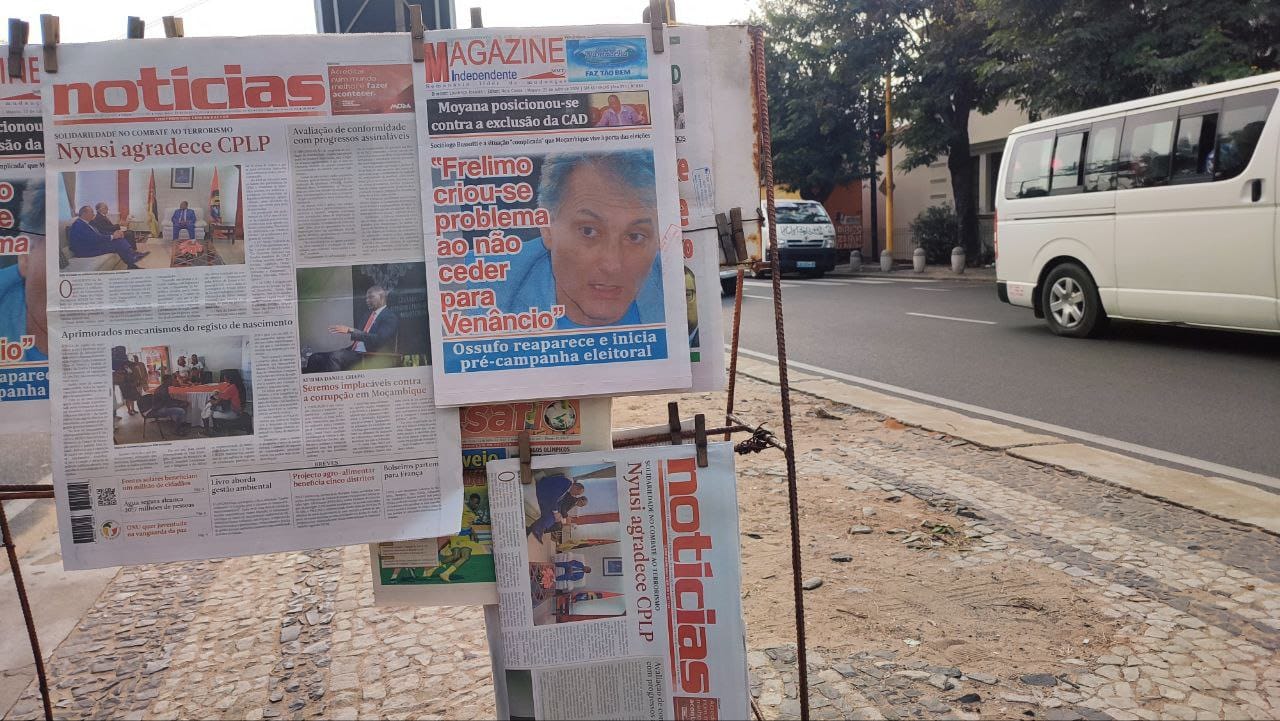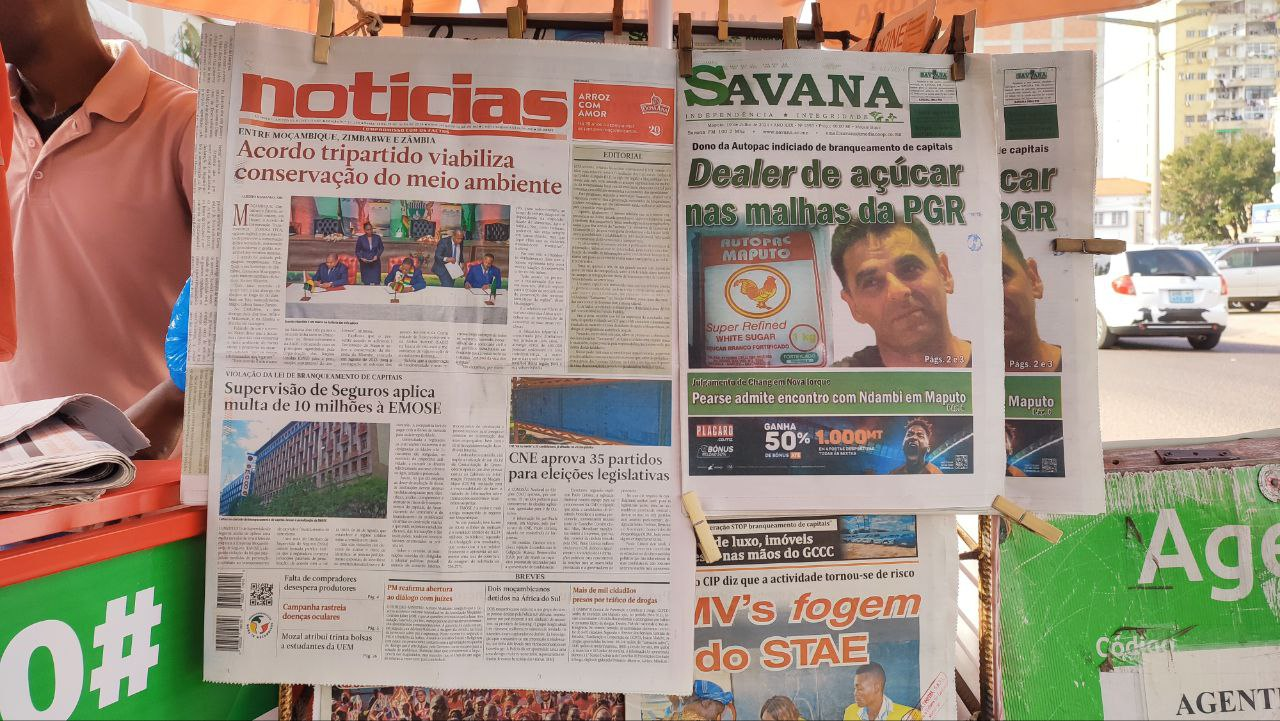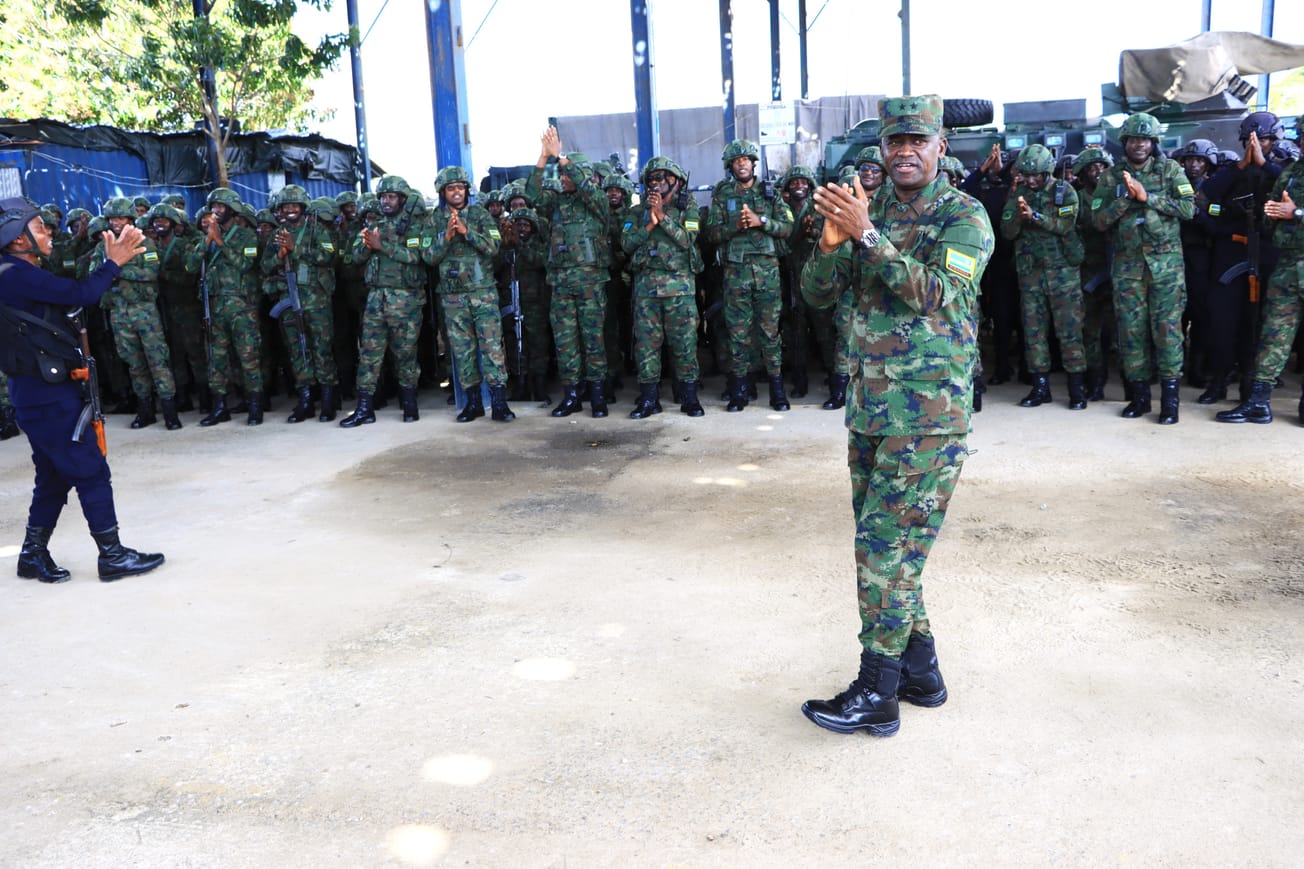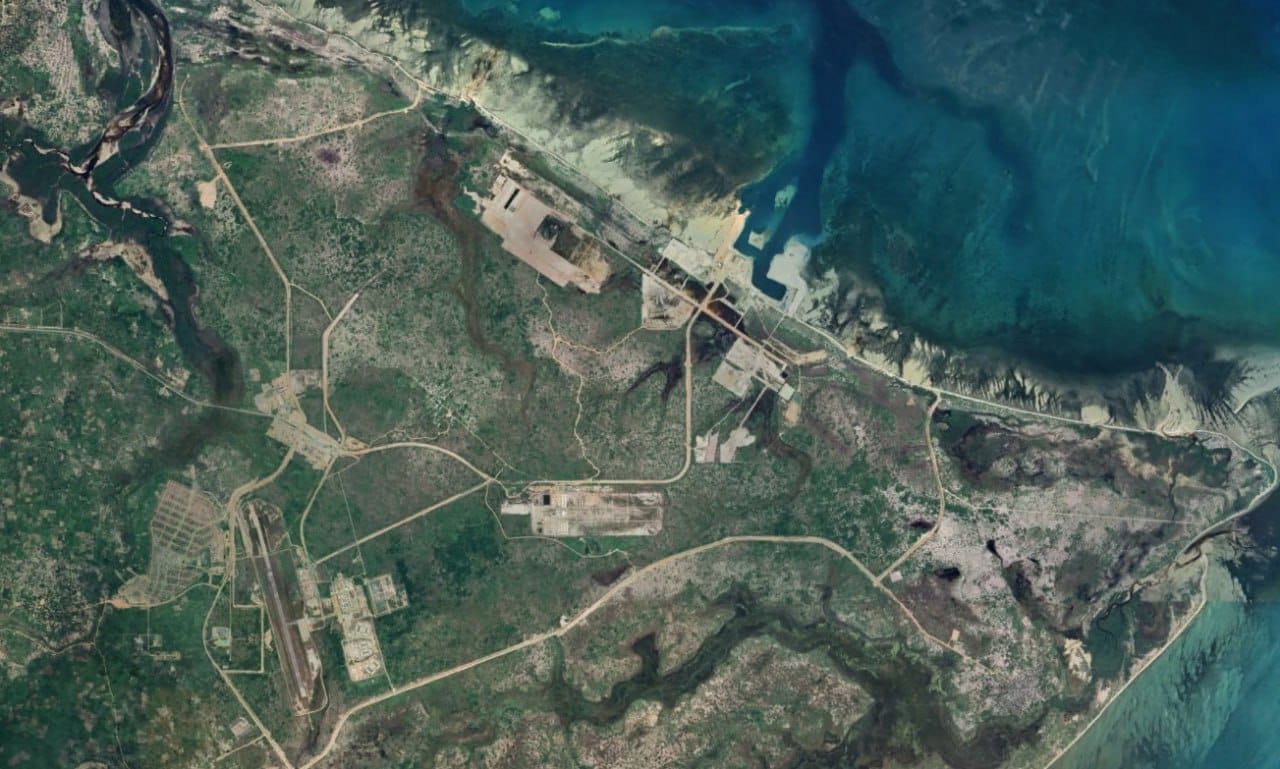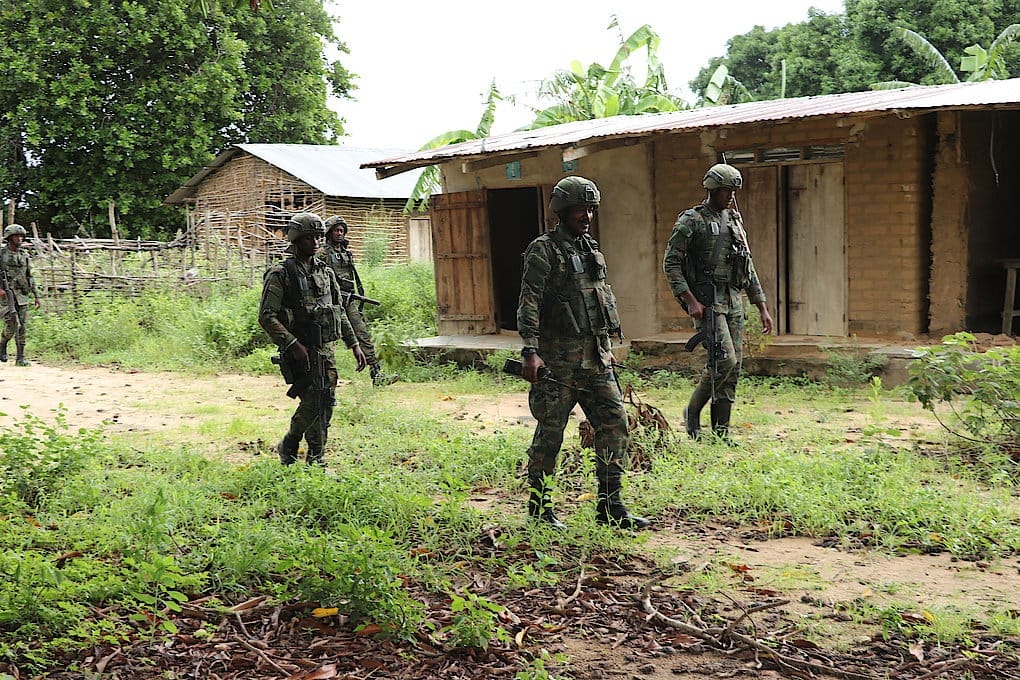Tomorrow’s Angola Economic Briefing is the last before it goes behind a paywall — but there will always be something for free subscribers. Sign up now to stay in the loop: https://angolabriefing.substack.com/
The latest from Zitamar News:
Opinion: Schools need water to win the fight against covid-19
The links between water and public health have never been clearer — but the link between water and education is now in stark focus as Mozambique grapples with the challenge of sending its future generation back to the classroom safely, writes WaterAid country director Adam Garley
From the Zitamar Live Blog:
Follow on Telegram or on our website
Two covid-19 deaths announced over weekend, as 82 new cases recorded
The two victims were aged 12 and 66
The best of the rest / Today’s headlines:
- State employees convicted of organ trafficking in Zambézia (Notícias)
- Insurgents return to Litandacua but fail to avenge last week’s deaths (Mediafax / Cabo Ligado)
- President Nyusi provides details of international covid-19 funding (A Verdade, Lusa)
- Mozambique has no religious intolerance, says foreign minister (AIM)
- Nampula needs $1m to build refugee camp, says official (AIM)
- SADC has responsibility to protect ‘abandoned’ Cabo Delgado (Sunday Tribune)

State employees convicted of organ trafficking in Zambézia (Notícias)
Ten public servants have been sentenced to up to 15 years in prison for people and organ trafficking in the province of Zambézia. The group includes two teachers, one from Morrumbala and the other from Alto Molócuè, who were involved in human organ trafficking, Domingos Julai, a spokesman for prosecutors in Zambézia, told the press. Julai said there were other state officials accused of the same crime in Zambézia awaiting trial, including the infamous Elias Durão case, a teacher who worked at the Namacata Primary School in December 2019 and had her 12-year-old neighbour killed in order to harvest his organs.
Insurgents return to Litandacua but fail to avenge last week’s deaths (Mediafax / Cabo Ligado)
Insurgents again attacked the village of Litandacua in Chai, Macomia, on Friday night, burning huts and looting goods, without killing anyone. The insurgents arrived at 10pm when people were already sleeping, but they woke up and fled to the bush. The insurgents apparently wanted to take revenge for their comrades who were killed in the village last week, but may have been frustrated in that attempt by government forces who are now stationed in various points around the conflict-hit districts.
President Nyusi provides details of international covid-19 funding (A Verdade, Lusa)
President Filipe Nyusi has issued an addendum to his report to parliament on the state of emergency imposed to control covid-19, saying that the country has already received $340.8m of the $700m requested from cooperation partners. The information comes after the think tank CDD criticised the lack of detail on financial support in the report submitted by the president on Friday morning. International partners pledged precisely $682,809,304 but by the end of the state of emergency they had only provided $340,801,334, with the International Monetary Fund disbursing about 95% of the amount ($309m), according to the document submitted to parliament outside normal business hours. However, the government claims to have spent more than $1bn during the 120 days of the state of emergency, without specifying on what.
Mozambique has no religious intolerance, says foreign minister (AIM)
The insurgent attacks in Cabo Delgado province are attacks on the whole country and have nothing to do with religion, according to Verónica Macamo, minister of foreign affairs and cooperation. “These are terrorist acts ‒ we cannot say that they have anything to do with any religion. We in Mozambique are a blessed people; we have no problem of religious intolerance,” Macamo said while meeting aid partners in Nampula province on Friday, adding that everyone in the country was free to profess their religion of choice. There are 52 non-governmental organisations and United Nations agencies operating in Nampula, AIM reports. Macamo thanked them and asked them to continue contributing, in order for the executive to help the 10,050 refugees in the province who have fled the insurgency in Cabo Delgado.
Macamo’s blase and complacent response might be aimed at discouraging any further religious strife — but seems also to follow the government line of refusing to take any blame for the insurgency internally, instead saying Mozambique is under attack from outside evildoers. Reports on the ground also show that there is an Islamist element to the conflict; IS has claimed some of the attacks, there have been videos from insurgent groups claiming their intention to impose Sharia law, as well as evidence of Islamic practices within Jihadist hideouts, such as prayers and Islamic marriages.
Nampula needs $1m to build refugee camp, says official (AIM)
The provincial government in the northern province of Nampula will need about 75m meticais ($1m) to build a camp to house 1,000 refugees displaced by the insurgency in Cabo Delgado province, an official from the National Disaster Management Institute has said. Alberto Armando, the institute’s provincial delegate for Nampula, said on Friday that the camp would be located in Inthuthu, Meconta district, and that the budget included drilling two boreholes for water, building housing and providing cooking utensils and agricultural inputs. In the next few days, plots of land would be marked out for housing and farming, he added. Currently, 12 of Nampula’s 23 districts are home to a total of 10,050 displaced people.
Financial inclusion study shows excruciatingly slow progress (O País)
The proportion of people with a bank account in Mozambique rose by just one percentage point over the five years to 2019, from 20% to 21%, according to a study carried out last year. Bank of Mozambique director Gertrudes Tovela said the increase was very weak, pointing to age limits and insufficient income as some of the barriers to opening new accounts. Around 60% of the population has access to some kind of financial services, including mobile money services.
Anti-money laundering and anti-corruption measures must be at least in part to blame for these figures. At Millennium Bim, for instance, bank account holders making little over minimum wage are regularly required to provide proof of where their salary comes from, under the threat of having access to their account suspended — something which surely does nothing to actually combat crime in Mozambique, but just makes life harder for people who are already struggling. Commercial banks blame the central bank for all these new requirements in controlling private bank accounts and the opening of new accounts. Mobile money services are also under stricter controls since the security services suspect insurgents are using them to facilitate transactions within their network. Even including mobile money services, 40% of Mozambicans have no access to any kind of financial service, an alarming lack of progress towards financial inclusion.
SADC has responsibility to protect ‘abandoned’ Cabo Delgado (Sunday Tribune)
The member states of the Southern African Development Community have a legally-mandated responsibility to protect the people of Cabo Delgado province from human rights abuses there, according to South African law professor Andre Thomashausen, who has had a long association with Mozambique. He provides a historical perspective emphasising Makonde dissatisfaction with the Frelimo regime, and implying that Tanzania’s reluctance to help the Mozambican state is because it has long wanted to incorporate Cabo Delgado into Tanzania. Moreover, Tanzania “is still seething about the sudden expulsion of 7,000 Tanzanian traders and artisans from Cabo Delgado province in 2015, as a first demonstration of force by Mozambique’s then newly elected president Nyusi.” He claims Mozambique attracted natural gas developers by offering a more attractive tax regime, “causing LNG exploration works in Tanzanian waters to be abandoned”, whereas “an independent Republic of Cabo Delgado would probably seek a joint exploration zone agreement with Tanzania.” Thomashausen also says photographs show the Cabo Delgado insurgents using “Western weapons or AK47 rifles with the characteristics of Pakistani manufacturing,” and an M249 light machine gun “manufactured for the US army under the licence of Belgian FN. The foreign armament must have been supplied by Tanzania or Pakistan,” Thomashausen claims.
Thomashausen’s take on the situation is worth a read, but dotted with outlandish claims. It’s true Mozambique offered an (overly) attractive legal regime and tax rates to developers, but at the same time Tanzania’s new president Magafuli introduced harsh foreign investment laws — including banning any international company from taking cases to international arbitration — that stopped investment across the all extractive sectors, not just gas, which Mozambique can hardly be blamed for. In addition, Mozambique’s geology is more attractive than Tanzania’s as the Rovuma Basin reserves are both larger and more unified than Tanzania’s offshore finds. Thomashausen does not explain why the arms he mentions must or even might have come from Tanzania. While the concept of an independent Cabo Delgado has been mooted, it seems unlikely that this is at play, and Mozambique is incredibly sensitive to any suggestion of breaking up the country, so this will not go down well with the authorities. As a CMI report recently noted, the secession of Cabo Delgado is neither “realistic or likely,” as the “Makonde Big Men” who would most likely be behind it “are well entrenched in Frelimo’s political leadership and benefit from business opportunities in the whole country.” The most solid part of the article is that calling for international intervention to protect human rights — though, oddly, he ends by saying the most important thing is to “prevent the gas and oil majors from giving up altogether on the Rovuma basin LNG deposits.”
Company Announcements
- Ncondezi Energy said that it had submitted a study to state-owned electric utility EDM giving options for connecting its proposed 300MW coal-fired power station to the electrical grid. The study would be used by EDM to approve the transmission option chosen to connect the project, it said (see here)
- The Bank of Mozambique said that the applications process was open for the position of executive director of the Macroeconomic and Financial Management Institute of Eastern and Southern Africa, where the post would fall vacant on 1 September
- The Ministry of the Economy and Finance launched the third edition of its ‘Finscope’ survey into consumers’ use of and access to financial services (see here) and published documents relating to the government’s five-year plan (see here)
- Kibo Energy said that its extraordinary general meeting, convened solely to consider a second resolution to increase the company’s share capital following the failure of the first resolution to pass in June, would be held on 24 August in Dublin, Ireland


